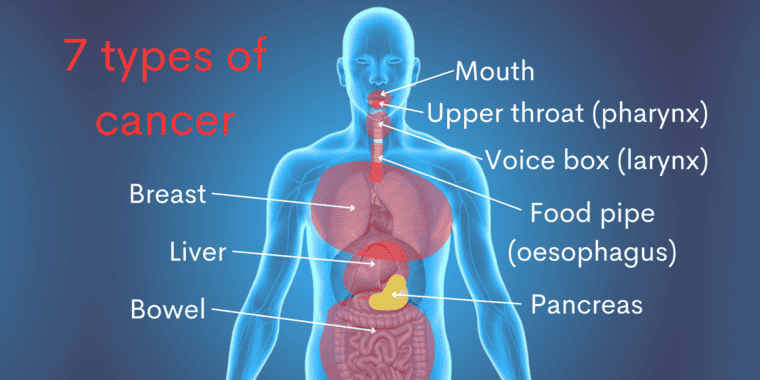
Understanding among the British public that alcohol can cause cancer is worryingly low. Surveys periodically show very low percentages of people recognising the danger of alcohol in relation to cancer, including breast and bowel cancer, despite well-established research showing this link clearly.
The blame for this should not lie at the door of consumers. Consumers generally only know what they have been told and absorb the messages that come their way. We cannot expect everyone to do their own research on everything they consume when they are constantly bombarded by messages in their everyday life selling them a positive story.
It is therefore appropriate that British policy-makers take note of the World Cancer Research Fund (WCRF)’s recently launched alcohol and cancer policy paper, which contains some tough messages for consumers and policymakers alike. So far, there has simply not been enough effort on the side of policy-makers to make sure people know about the link between alcohol and cancer, and this must change.
Alcohol and cancer risk
The WCRF sets out clearly the known cancer risks of alcohol. Alcohol is a risk factor in seven different cancers, and, according to the WHO, is estimated to be behind 4% of cancer cases worldwide. What is more, there is no safe limit of drinking, because:
…there is no threshold at which the cancer risk of alcohol suddenly begins, or below which the risk of at least some cancers does not increase.
And your risk is ‘dose-responsive’, so:
…the more you drink alcohol, the higher your risk of cancer. Conversely, the less you drink, the lower your cancer risk.
This leads WCRF to put across some strong messages to governments about use of language and communications. It cautions that expressions like ‘responsible drinking’ and ‘moderate drinking’ should be avoided because they risk obscuring the reality that there is no level of alcohol consumption that can be deemed safe for health.
Policy change: Awareness and alcohol labelling
The WCRF sets out some key policy recommendations for policymakers. These include the introduction of mandatory health warning labels on alcohol products, a policy which CancerWatch has been strongly supporting and which formed a key plank of our 2024 Cancer Prevention Manifesto.
Improving general awareness of the links between alcohol consumption and cancer should be a policy priority and the first step in the battle to minimise preventable cancers caused by alcohol consumption. There is good evidence that exposure to warning labels related to cancer leads people to moderate their consumption. At the moment, too many people are simply unaware of the risks, but if they were visible on the label of every alcoholic product, we would start to see a shift.
The UK government should now look to follow the Irish government which has, ignoring the frantic lobbying of the alcohol industry, done exactly this and introduced a mandatory labelling system.
Policy change: Reducing consumption
We also support the other policy approaches which the WCRF recommends as evidence-based tools to reduce alcohol consumption. These include:
- Fiscal and pricing policies: increasing excise taxes and setting minimum unit pricing
- Restricting availability: limiting where and when alcohol can be sold and regulating alcohol retail outlets.
- Marketing restrictions: banning or strictly regulating the promotion and sponsorship by alcoholic products and brands.
- Updated national guidance: ensuring that public health guidelines in every country reflect the evidence on alcohol and cancer risk.
Need for a national Alcohol Strategy
All of these recommendations should go into the formation of a new national alcohol strategy. We urge the new Labour government to bring this forward as a matter of urgency. Prior to the election, the WCRF called for any newly elected UK government to commission an independent review to inform the development of a national alcohol strategy within its first 100 days.
The last alcohol strategy for England and Wales was published in 2012, despite the evidence of increased harms over the last decade. And barely any of that strategy was actually implemented. It’s high time we saw more urgent action to tackle the preventable harms that alcohol can cause, including cancer. It is only when consumers become more aware of the risks that things will start to change.
Written by Jill Clark, Chair of CancerWatch.
All IAS Blogposts are published with the permission of the author. The views expressed are solely the author’s own and do not necessarily represent the views of the Institute of Alcohol Studies.
